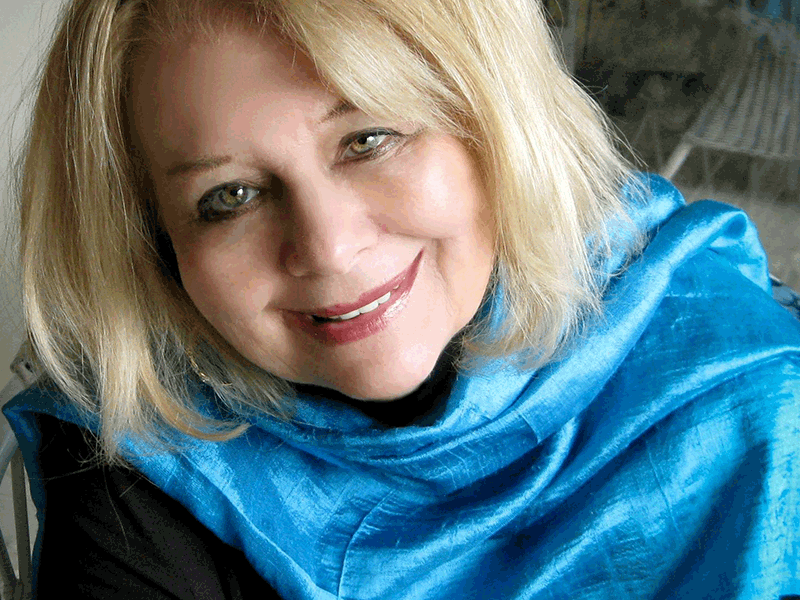Child Holocaust survivor, Lillian Boraks-Nemetz, recently released her new novel, Mouth of Truth, an autobiographical fiction about her struggles with identity, and discusses how the effects of childhood trauma have followed her into adult life, among other things.
Mouth of Truth is her first novel for adults, and is a continuation of her award-winning children’s book, The Old Brown Suitcase. However, she chose to change the name of the main character, from Slava, who was in The Old Brown Suitcase, to Batya in Mouth of Truth.
“This is an adult book because it has adult topics and aspects of my life that were omitted from my first book because they were not allowed to be in a children’s novel, things like sexual abuse, murder of a child, and love affairs,” she says.
Boraks-Nemetz, who spoke at the Barbara Frum Library in Toronto on Oct. 23, moved to Canada from Poland when she was 14-years-old. In 1942, she escaped the Warsaw Ghetto and spent the rest of the war in hiding.
Mouth of Truth is an intricate novel that has a lot of different themes and layers, and can be described as a “Post-Holocaust” novel, as it takes place years after the main character is liberated and talks about how she is struggling with her relationships and mental health.
READ: BOOK SHEDS LIGHT ON HORRORS SUFFERED BY LITHUANIAN JEWS
This book incorporates a constant struggle and dialogue between the main character’s two sides: Batya, the hidden Jewish child who had to lie about being Jewish, that no one wanted to acknowledge; and Beata, the logical, surviving side that is tame, and more conventional, and does things for the sake of society and the people around her.
“I definitely could see myself as two different people. On the one hand, I was a mother, a daughter, a wife. I did things as they should be done because of society, because of the children,” says Boraks-Nemetz. “But there was the other side of me, that would drink a lot, be very loud and dressed outrageously like the flower children of the 1960s.”
Boraks-Nemetz writes about how the main character, Batya, suffered from suicidal thoughts and depression throughout her adult life. It comes to a point where she decides to make drastic changes in her life in order to find happiness, and escapes from Vancouver (where she had been living with her family) to Toronto, leaving her teenaged children with their father, which proved to be “unimaginably difficult.”
In the novel, Batya begins to research things about her family because she hears rumours about her father, Shimon Lichtenberg, who had developed a bad reputation because of lies that were initially spread by a Catholic former friend who was blackmailing her father in order to get the family’s property and made him seem like “the bad man of the Jewish police.”
The second main character of the novel is Shimon Lichtenberg, and a section of the novel is written from his perspective. Boraks-Nemetz says that incorporating her father’s story was crucial for her story, and found that writing this part was very effortless, and is one of the things that makes this book so special. “My father’s spirit breathed his story into my book. I invented his voice with such ease as if some invisible force was guiding my hand,” she said.
This section of the book offers his side on what happened during the war, and discusses the guilt that he felt from participating in the deportations of Jews in Warsaw.
“I knew that he appeared at this centre of deportation, the umschlagplatz, but [the Nazis] forced him to do this – you get so far in and then you can’t get out,” she explained. “He became a policeman in order to feed his two children, who were starving.”
He also talks about his identity struggle as a child and young adult, as he was from a wealthy and secular Jewish family, and yet was fascinated in the religious Jews who lived in a poor district of the city, and who were not assimilated into Christian society. He writes about his experiences with anti-Semitism, and how he questioned where he into the “Judeo-Christian equation.”
“When you are persecuted as a young person, you don’t have the kind of conviction that North-American Jewish kids have: ‘I’m a Jew, I love religion, I love Israel’ – European-Jewish children wouldn’t even think that way because they were constantly persecuted,” says Boraks-Nemetz.
She explains that once Batya leaves her unhappy marriage and finds out more about her family, she really begins to find herself, and learns more about her identity. Up until this point, she had resolved to “just pack everything back,” and because she was surrounded by Canadian Jews who were sometimes not all that understanding of Holocaust survivors during that time, she felt like she had no one to talk to.
Ultimately, this novel, among many other themes, is about how the past and childhood trauma can follow survivors into their adult life as “reverberations of memories” and greatly affect their mental health and relationships with others. Boraks-Nemetz says children suffer greatly during wars, and without proper help and understanding, it takes them a very long time to heal.
“This was my story of how to cope in adulthood with all these things that I’ve seen and felt,” says Boraks-Nemetz. “I have the compulsion to write, because I sincerely want to say something and make it worthwhile – this book is not just a made-up fable, it’s my life.”
Lillian Boraks-Nemetz is going to be speaking at the Cherie Smith Jewish Book Festival on Nov. 26 in Vancouver. For more information about her books and future events, please visit: https://lillianboraks-nemetz.com/
